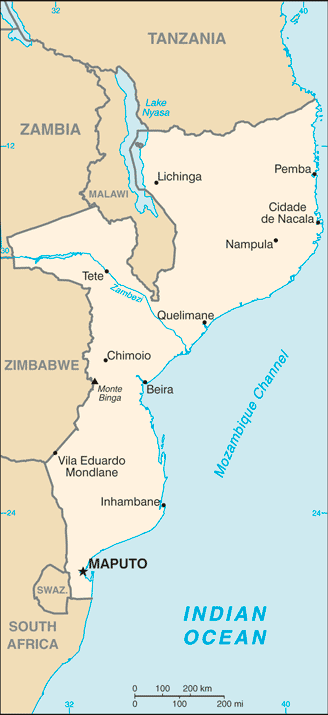Mozambique

The Republic of Mozambique has an estimated population of 23.4 million (UN, 2010). The capital is Maputo. Mozambique has an area of 812,379 sq km (313,661 sq miles). The main languages are Portuguese (official), Makua-Lomwe, Swahili and indigenous languages.
After nearly 5 centuries of colonization, Mozambique gained its independence in 1975 from Portugal. In 1992, a peace deal ended 16 years of civil war between the government forces of FRELIMO and opposition forces of Renamo. The civil war killed an estimated of 1 million people and displaced millions of people. Furthermore, the country faced famine and bad economic management. Between 2000 and 2001, floods hit the country and destroyed much of the infrastructure.
The Law in Mozambique states that women and men have equal rights, however, discrimination against women is still an obstacle to gender equality. The first female prime minister was elected in the December 2004 elections. Women occupy 35 percent of the seats in the new parliament.
- Mozambique ratified the Protocol to the African Charter on Human and Peoples' Rights on the Rights of Women in Africa (The Maputo Protocol) on the 9th of December 2005.
- The Convention on the Elimination of All Forms of Discrimination against Women (CEDAW) was ratified by Mozambique on the 21st of April 1997.
- Mozambique has not yet adopted a National Action Plan on United Nations Security Council Resolution 1325 (UNSCR 1325).
- From December 1992 to December 1994, there was a UN mandate in Mozambique: United Nations Operation in Mozambique (ONUMOZ).
